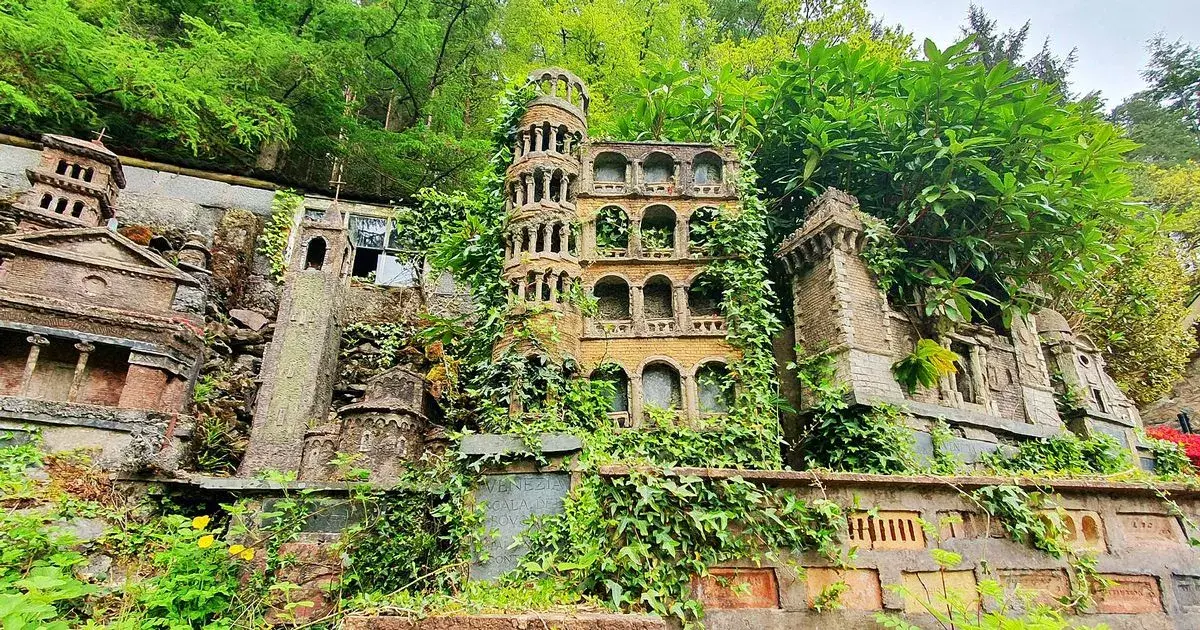A hidden gem engulfed in greenery has revealed more of its mysteries as volunteers uncover hundreds of ornate Mediterranean-style structures. Volunteers at the site, dubbed the “Little Italy” of southern Eryri , have been astounded by the number of replica buildings nestled within a small woodland.
“Every time I pulled away more ivy I thought: ‘Bloody hell, there’s another one’,” said Jonathan Fell, the site’s colourful curator. To date approximately 200 “objects” have been discovered a collection that includes not only buildings but also statues, plaques, and various curiosities. Before the conservation efforts started a few years back only about 30 structures were visible.
The area is dotted with iconic Italian structures ranging from the Duomo of Florence to the Rialto Bridge of Venice. Among the more recent finds are some unexpected elements: a miniature English village, a cat cemetery, and what appears to be a Venetian canal, which may have once carried flowing water.
Each discovery further amplifies the admiration Jonathan holds for the site’s creators, Mark Bourne and his wife Muriel. He views their homage to Italian architecture, located on the fringes of Corris, between Dolgellau and Machynlleth, as a testament to their obsession, perseverance, and creativity.
He dismisses those who refer to it as a model village and has little patience for any comparison with Portmeirion, the renowned Italianate village in Porthmadog. “I absolutely love this place,” Jonathan said. “I don’t like to call it folk art because it’s much more than that. It’s such an important site – one of the most important in Wales, far more so than Portmeirion, which had all that money thrown at it.”
Mr Bourne previously ran a caravan site and poultry unit. He would often vanish to Italy for weeks on end, coming back with sketchbooks brimming with architectural drawings. Donning his signature baggy corduroys he would then get stuck into his recreations, occasionally aided by local volunteers. Old materials, from wash boilers to hub caps, were repurposed to provide structure then wrapped in moulded chicken wire ready for concreting.
Over a quarter of a century Mr Bourne hauled thousands of buckets of water and ballast from the Afon Deri in the valley below to be mixed with concrete to make mortar. A modest Datsun 4x4 and trailer did some of the heavy lifting but, for the final stretch, up through the garden, sheer physical strength was required.
Jonathan still finds it hard to grasp the magnitude of the task. “This guy spent 25 years carrying hundreds of tonnes of concrete, water and ballast up a hillside with a slope that ranges from 30 to 45 degrees,” he said. "At its steepest, it’s hard to walk up and he had to build paths up there before erecting a workshop, laying foundations, and starting on the objects.
"With a job like this, I would have used winches and flywheel to lift everything up the slope. I certainly couldn’t have carried all those buckets up there. It was a huge amount of work just building the steps. Probably his wife helped him. I remember Muriel still walking up the track from Corris, carrying two shopping bags, at the age of 84.



New Portmeirion just dropped